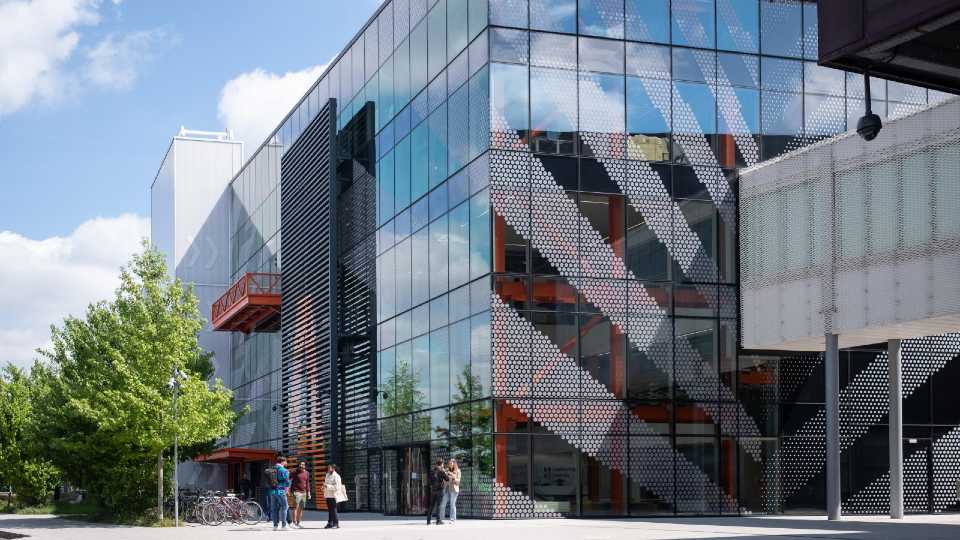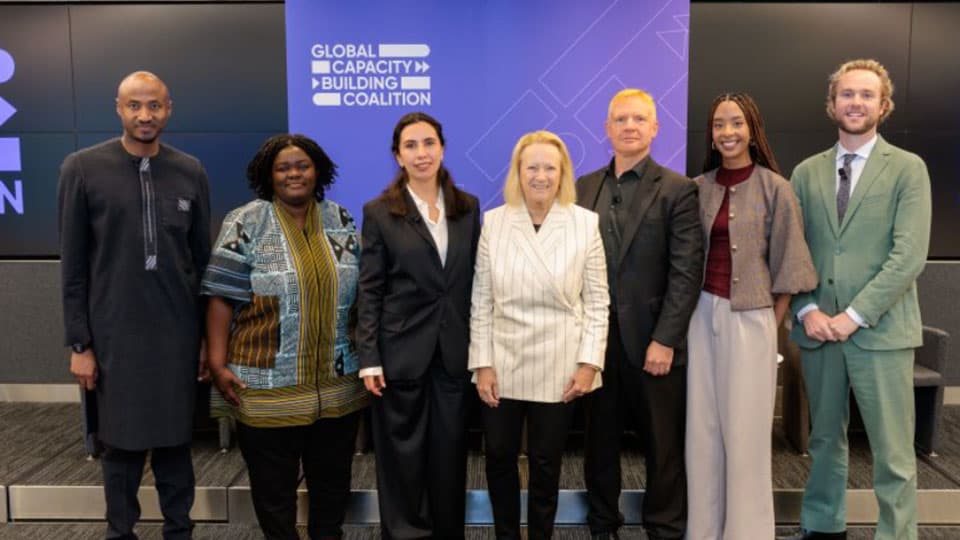From the Vice-Chancellor – October 2025

In my October newsletter: Reviewing the strategy, 10 years of Loughborough University London, Loughborough helps to unlock the region’s innovation potential, and marking Black History Month.

Reviewing the University strategy
In my July newsletter I updated you on the broad conclusions from our review of the University strategy, Creating Better Futures. Together, which we undertake each year to assess whether it remains relevant and appropriate.
Over the summer we have refined our thinking further and a short-to-medium-term delivery plan was approved by University Council earlier this month. The plan recognises that, due to changes in the higher education landscape, we have to be realistic about the resources we have available and focus our efforts on a smaller number of priorities to secure our financial sustainability and preserve our distinctive strengths.
Each of our Pro Vice-Chancellors has considered their priorities and outlined the areas that we’ll all need to focus on over the coming months and years.
As I said in July, the increased focus we have now agreed will enable us to concentrate on growing our income, maximising appropriate new opportunities as they arise, and making sure we’re operating as efficiently as we can. By working together to deliver these priorities, focusing our efforts and being sensible with both our time and resources, I am confident that we can face the future with optimism.

London campus celebrates 10th anniversary
This month marked the 10th anniversary since we opened our second campus on the Queen Elizabeth Olympic Park in London.
Throughout the last decade Loughborough University London has offered postgraduate study, pioneering research and cutting-edge innovation across its five institutes. It has graduated 5,600 students, secured £15m of research funding, invested £500,000 in scholarships for local people and community projects, and supported 160 small to medium enterprises through workshops and its micro-internships scheme.
We’ll be marking this important milestone for Loughborough University London throughout this academic year, starting with a panel event for our London alumni who are now working for global organisations including EY, Google, Sky Sports and the Bank of England.
The Park has changed a lot over the past decade; today it is a vibrant hub for innovation, sport and culture, with the V&A, Sadler’s Wells and the BBC among the iconic organisations that have sited new developments there alongside the world-class sports facilities that were central to much of the London 2012 Olympic and Paralympic Games. I’m proud that Loughborough University was at the forefront of the Park’s development.

New platform to unlock the Midlands’ innovation potential
Driving innovation is a key part of the Government’s growth strategy, and we have the potential to be central to its delivery.
The Midlands has a strong university knowledge base and is home to 11% of the UK’s high-growth companies. Yet despite its strengths, the region faces challenges in retaining and scaling its innovation. To fully realise the region’s potential, the Midlands must not only generate innovation but ensure it thrives locally.
This month we took a major step forward in unlocking the region’s innovation potential with the launch of the Midlands Ecosystem Platform, a digital gateway to the region’s £31bn innovation economy. The platform has been developed through a partnership between three Midlands Innovation-linked initiatives: Forging Ahead (a collaboration of 15 Midlands universities), the investment company Midlands Mindforge – with Loughborough a lead partner in both these initiatives – and the Invest in UK University R&D – Midlands campaign, which aims to promote the region’s strengths.
The new Midlands Ecosystem Platform brings together data on nearly 6,000 startups in the Midlands and connects users to science and tech campuses and over 1,000 active investors.
More than 600 Loughborough University-linked companies are listed on the site, covering industries from engineering to food technology. For instance, TransHumanity Ltd, a spin out from the University’s Transport AI Innovation Centre, helps transport authorities quickly analyse data to support congestion reduction and road safety. Dineticq has leveraged two decades of research in sports biomechanics to develop advanced motion analysis technology for cricket players and coaches worldwide. Spin-out Zayndu specialises in innovative seed priming technology that enhances crop yields without using agricultural chemicals. And Previsico’s flood forecasting and monitoring technologies enables organisations to prepare for, act upon and prevent flood impacts.
All the Loughborough-linked innovations on the new platform are outstanding examples of how we can transform our bright ideas and cutting-edge research into investment-ready spinouts that showcase not only the strengths of the University but also the wider Midlands region.

Marking Black History Month
Throughout October we’ve been marking Black History Month with a range of events and initiatives under this year’s theme of ‘Standing Firm in Power and Pride’.
Celebrating awareness events such as this is an important part of our ongoing strategic work on equity, diversity and inclusion (EDI). It enables us to improve our knowledge and understanding of the experiences, achievements and challenges faced by members of our communities and helps to drive positive change in our attitudes and behaviours.
As we move forward through the next phase of strategic development, EDI will continue to be an integral part of everything we do at the University, embedded within each of our strategic priorities of Education and Student Experience, Research and Innovation, and Sporting Excellence. Our vision remains for Loughborough University to become an anti-discriminatory organisation where everyone contributes to EDI.

University of Sanctuary celebration
At the start of the month staff, students and members of the community gathered to celebrate our University of Sanctuary status, awarded earlier this year in recognition of our ongoing efforts in providing a welcoming environment for refugees and asylum seekers.

Loughborough at the Party Conferences
Loughborough’s research and innovation expertise was again showcased at this year’s Party Conferences. Party Conference season offers the chance to highlight research, shape policy discussions, build relationships across government and industry, and position ourselves as a delivery partner on national priorities such as growth, skills, innovation and net zero.

Prestigious global prize
The Foreign, Commonwealth and Development Office (FCDO)-funded project, Climate Compatible Growth, which is based at Loughborough, has been recognised with one of the inaugural Global Capacity Building Coalition (GCBC) Accelerator prizes at New York Climate Week.
Vice-Chancellor's Communications
Opinions and comment from the Vice-Chancellor, Professor Nick Jennings

